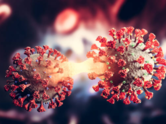Hashimoto's disease

A butterfly-shaped gland called the thyroid can be found near the base of the neck, just below the Adam's apple. Numerous bodily processes are regulated by the hormones that the thyroid generates.
When the immune system attacks healthy tissues, it results in an autoimmune condition. Immune system cells cause the thyroid's hormone-producing cells to die in Hashimoto's illness. Typically, the condition causes a decrease in hormone production.
Thyroid hormones regulate metabolism, which is how you turn food into energy. Your body cannot function normally when you are low on energy, and your body's processes start to slow down. Having hypothyroidism can have severe emotional and physical effects on individuals.
It's possible that early symptoms go unnoticed. The thyroid gland may expand over time and develop a painless goiter. Hypothyroidism can eventually develop in some persons, who may also experience weight gain, lethargy, constipation, depression, hair loss, and general aches and pains. The thyroid normally declines in size over time. Thyroid lymphoma is one example of a potential consequence.
Further issues can include, but are not limited to high cholesterol, heart disease, heart failure, high blood pressure, myxedema, and potential pregnancy issues because untreated Hashimoto's patients frequently develop hypothyroidism.
It is believed that a mix of genetic and environmental factors contribute to Hashimoto's thyroiditis. A family history of the disorder and having another autoimmune disease are additional risk factors. Blood testing for TSH, T4, and antithyroid antibodies are used to confirm the diagnosis.
Unfortunately, there is no known mechanism to stop the inflammation of the thyroid gland known as Hashimoto's thyroiditis. The good news is that this illness is remarkably curable. The sooner one receives a diagnosis, the sooner they can begin treatment.












































































 Test your eyesight: You have excellent vision if you can spot the frog quickly
Test your eyesight: You have excellent vision if you can spot the frog quickly What happens to women when there is magnesium deficiency in the body
What happens to women when there is magnesium deficiency in the body 12 daily habits that eventually destroy our life
12 daily habits that eventually destroy our life 5 weight loss foods to eat in place of rice
5 weight loss foods to eat in place of rice Sharp eye test: Only those with a perfect vision can spot the third dog in the picture
Sharp eye test: Only those with a perfect vision can spot the third dog in the picture Best ways to lose belly fat while sitting
Best ways to lose belly fat while sitting Weight loss story: 36 year old man sheds 20 kilos with intermittent fasting and basic exercise
Weight loss story: 36 year old man sheds 20 kilos with intermittent fasting and basic exercise Ginger to turmeric: Unknown side effects of popular spices
Ginger to turmeric: Unknown side effects of popular spices What is the ideal distance to walk everyday for all age groups?
What is the ideal distance to walk everyday for all age groups? Why only walking might not be such a good idea; small changes that can make walking contribute to fitness
Why only walking might not be such a good idea; small changes that can make walking contribute to fitness How the habit of having 1 spoon of Moringa daily can improve health
How the habit of having 1 spoon of Moringa daily can improve health 5 signs you are having too much Vitamin D
5 signs you are having too much Vitamin D Brain teaser: Can you find the thief among these four?
Brain teaser: Can you find the thief among these four? 5 herbal supplements that can damage the liver
5 herbal supplements that can damage the liver How voice AI can help promote mental well being
How voice AI can help promote mental well being 8 benefits of walking for 30 minutes daily
8 benefits of walking for 30 minutes daily Vitamins and minerals that react with each other and should not be taken together
Vitamins and minerals that react with each other and should not be taken together Personality test: What you see first reveals if you are intellectual, determined or intuitive
Personality test: What you see first reveals if you are intellectual, determined or intuitive Side effects of Ginger that everyone should know about
Side effects of Ginger that everyone should know about Ginger water vs fenugreek water, which is better for melting belly fat?
Ginger water vs fenugreek water, which is better for melting belly fat? Test your eyesight: Can you find the number behind the green circle?
Test your eyesight: Can you find the number behind the green circle? Optical Illusion: Only a person with high IQ can spot the odd bowl
Optical Illusion: Only a person with high IQ can spot the odd bowl
 Feeling tired? 5 common deficiencies that cause it
Feeling tired? 5 common deficiencies that cause it 7 causes of stress at work (and how to manage it)
7 causes of stress at work (and how to manage it) Purified water causing magnesium deficiency; study urges to add minerals back into water
Purified water causing magnesium deficiency; study urges to add minerals back into water 45% of women to be single, childless by 2030: Morgan Stanley study
45% of women to be single, childless by 2030: Morgan Stanley study Say goodbye to reading glasses: DCGI approves vision-correcting eye drops
Say goodbye to reading glasses: DCGI approves vision-correcting eye drops